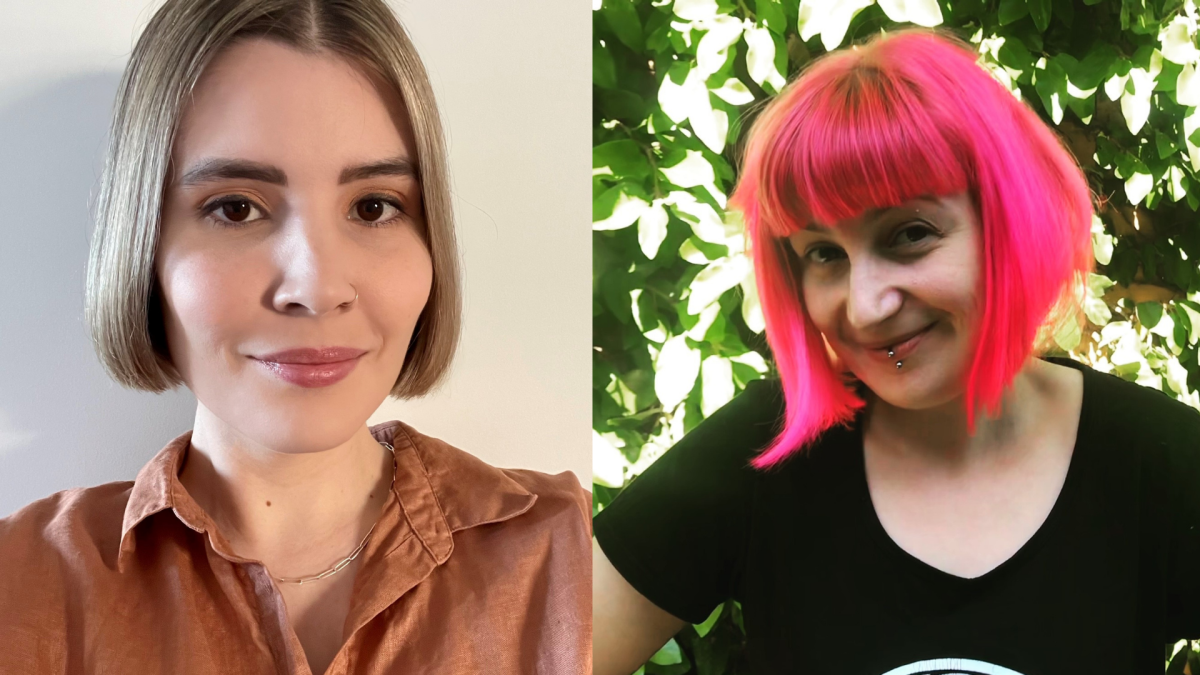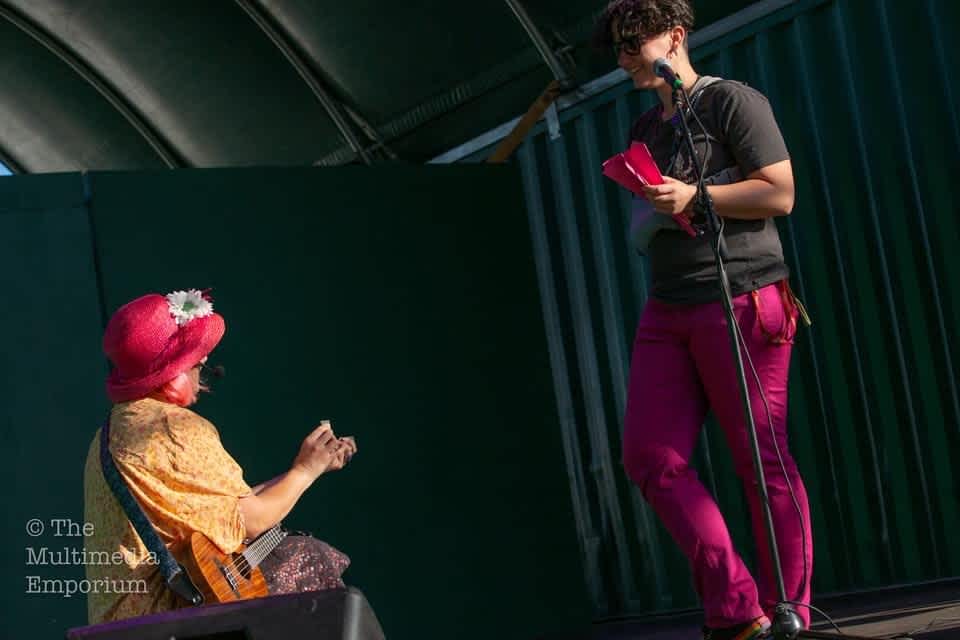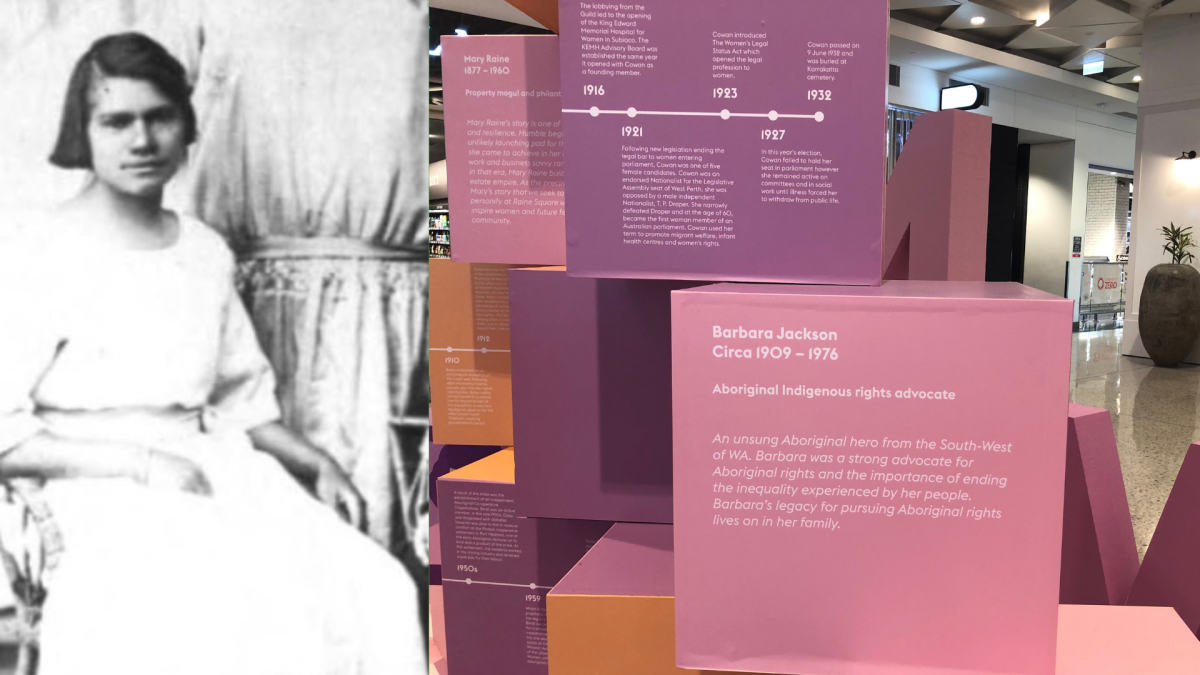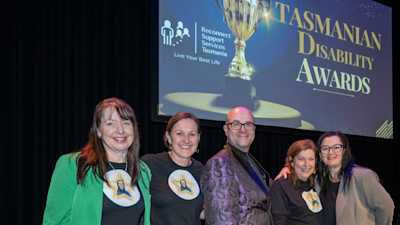Aboriginal and Torres Strait Islander readers are advised that this story contains the name and image of a person now passed.

This year for International Women’s Day (IWD), we asked women with intersectional identities across Life Without Barriers to share their stories.
The term intersectionality describes how different aspects of a person's identity can overlap and exacerbate experiences of discrimination and marginalisation. This can include culture, gender, sexual orientation, ability, religion, wealth, and class, among other characteristics.
Below you will find three stories from women who work at Life Without Barriers who have shared their experiences and shared how we can take action to break the bias in our workplaces and communities.
Ashleigh Sternes, Diversity and Inclusion Lead
I think many people fundamentally misunderstand what it means to have privilege. Living with privilege does not mean your whole life has been easy. It means you may not have experienced hardship in specific ways—oppression based on your culture, gender, sexual orientation, ability, religion, wealth, and class, among other characteristics.
Privilege is the absence of oppression, which makes it hard to spot. I experience privilege as a white, cisgender woman with access to education, employment, and safe housing. I experience a lack of privilege based on my sexual orientation and my disability. All these characteristics affect the way I move through the world.
Intersectionality describes the way parts of our identity can overlap, creating greater inequity and experiences of discrimination. I can’t pull apart the pieces of my identity—they all shape who I am and my experience.
Acknowledging and educating ourselves about our privilege is the first step in using it to create change. We can all do more to elevate and amplify the voices of women who are too often silenced.
Phi Theodoros, Resident Artist
As my alter ego, ‘Ukulele Dream Girl’, this time last year, I was sharing a show at the Adelaide Fringe called ‘Love at a Distance’. This cabaret show explored love and how we seek, share and receive love from many different perspectives. It was shared at festival hub venue The Lark, explicitly designed for women and non-binary artists to share their work.
I am passionate about sharing stories that often get overlooked and may go unheard, so performing at The Lark was an incredible experience and the perfect platform for this show. Performing live during the pandemic was a huge privilege, and my season was phenomenal.
Still, the highlight was proposing to my wife-to-be live on stage at the end of my closing show which fell on IWD last year and was the third anniversary of our first kiss.

International Women’s Day is a fantastic opportunity to celebrate the strength, diversity, and incredible achievements of women in a world that is still heavily dominated by patriarchal attitudes.
Visibility is so important, especially for people from marginalised communities.
Sharing and learning from diverse experiences helps us become more aware, compassionate, and better equipped to be strong allies and dismantle systemic barriers.
As a white, cisgender woman, I can take so much for granted while so many barriers still exist for other women around me. I learn so much from listening to my peers, clients and colleagues every day and believe in the power of sharing stories to help build understanding and empathy.
Recognising and acknowledging privilege is the first step towards challenging bias and the socialisation that reinforces it. All our lived experiences are valid, and it is valuable for us to listen to and learn from them.
I recently recalled the phrase, “You have two ears and one mouth. Use them in that order”.
Listening is one of the most powerful tools we have to understand the experiences of those around us better. When we can be open with our hearts and minds, we can acknowledge the challenges that marginalised communities face and work together to empower people to live authentically, safely, and proudly. We can all show up more often and call out problematic attitudes and behaviours. We can learn together, celebrate diversity, and build stronger communities when we begin by listening.
Pamela Thorley, WA State Lead, Aboriginal and Torres Strait Islander Initiatives
This IWD, I am sharing the story of my grandmother (Nan). Nan, Mrs Barbara Jackson, was born in 1909 in a small country town in the southwest of Western Australia (WA), Broomehill.
It was a time of bias and discrimination which thrived under oppressive legislation targeting Aboriginal people in WA.
A proud Noongar woman, Nan was a passionate advocate for the rights of her people. She taught young Aboriginal people specific life skills and fought for better knowledge and awareness of Aboriginal health.
Nan is being recognised as an unsung hero in this year’s IWD celebrations in WA. She paved the way for me and other Noongar people to pursue their hopes and dreams in a more equitable and inclusive world.
Because of her, I can.

You can read more about Barbara Jackson here.
#BreakTheBias #IWD2022


